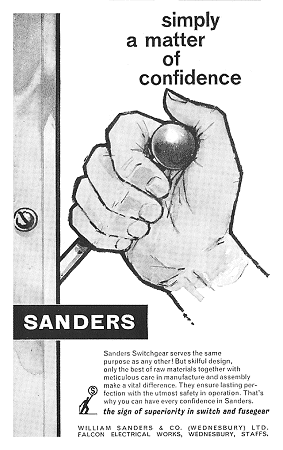 |
William Sanders & Company
(Wednesbury) Ltd. was founded in 1894 and moved to the
Ridding Lane site in 1897.
It became a limited company in
1934, and went public in 1951.
In the mid 1960s it became part
of Westinghouse, and in the early 1980s was transferred
to Hungerford. The factory in Ridding Lane was
demolished in September 1987. |
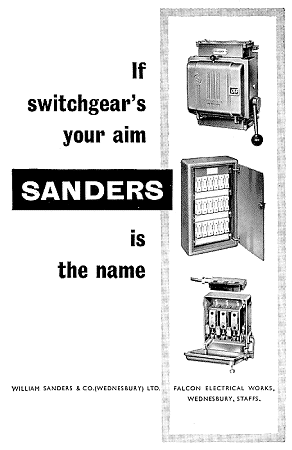 |
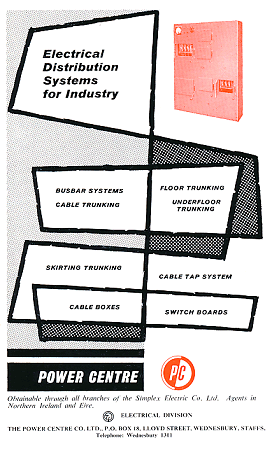 |
The Power Centre was
established in Liverpool in 1901 and moved to larger
premises in Wednesbury in 1908.
It became a member of the
Electrical Division of Tube Investments, and
concentrated on the production of electrical
distribution systems for all kinds of public buildings,
offices, factories, hospitals, and blocks of flats. |
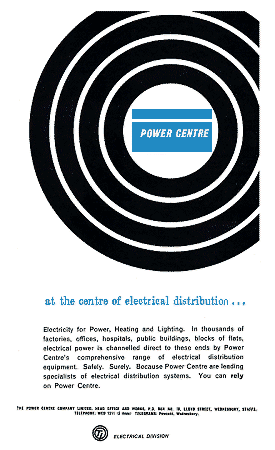 |
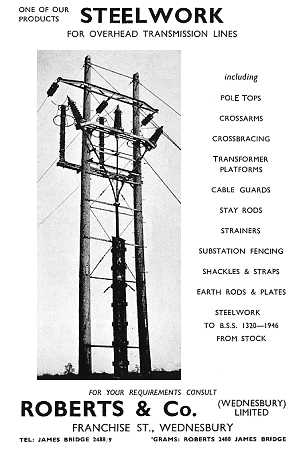 |
Prodorite Limited was
registered in London on 14th September, 1925 and soon
opened Eagle Works in Leabrook Road, Wednesbury.
The company specialised in
corrosion proof coatings, plastics, and structural
steelwork |
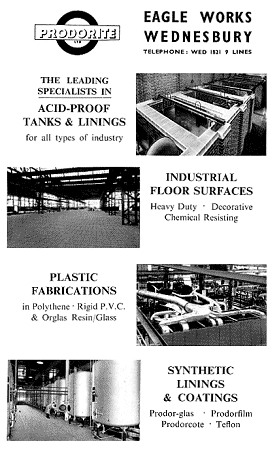 |
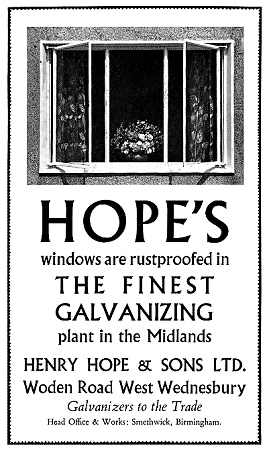 |
Henry Hope & Sons Limited
produced a wide range of standard reversible, galvanised
steel windows for multi-storey flats, and pressed steel
fabrications for the building industry.
Hopes also did hot-dip galvanising
for other manufacturers using their highly mechanised
plant, and their hot-dip tank, which was the largest in
the country. |
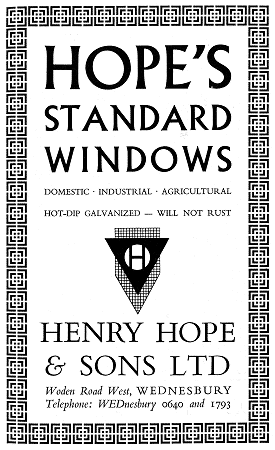 |
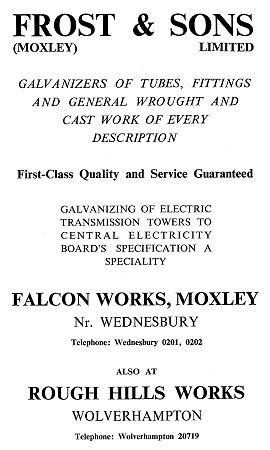 |
Frost & Sons (Moxley) Limited
was founded in 1889 as general galvanisers.
The business expanded, and opened
other factories in Tipton, and Wolverhampton. |
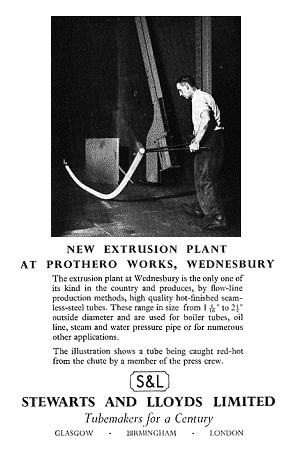 |
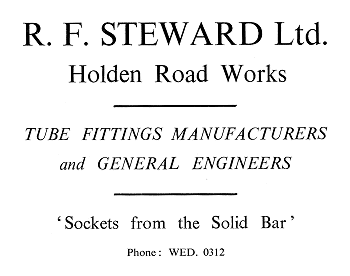 |
R. F. Steward Limited was
founded in 1924 to machine small tube fittings from
solid bar. In the early
1960s the business moved to larger premises in Portway
Road to concentrate on the machining of small parts for
the motor industry and allied trades. |
| Quilliam Limited specialised
in the manufacture of jute sacks and bags for all kinds
of small metal components, steel strip, wire, and
malleable iron castings.
Jute sacks and bags were also reconditioned. Victoria
Works stood between Leabrook Road and Potters Lane.
It was destroyed in a disastrous fire in the early
1960s. |
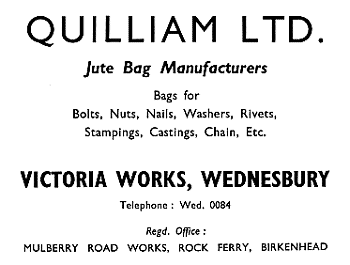 |
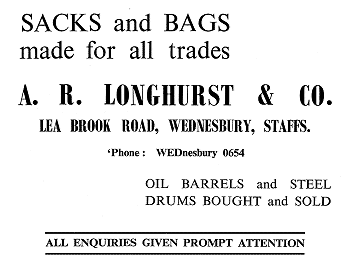 |
A. R. Longhurst & Company supplied
jute and hessian bags for all the metal trades. The
company also produced wood barrels, which later gave way
to steel drums, which were lighter and could carry
chemicals etc. |
| Edward Elwell leased Wednesbury Forge in 1817, and
purchased the site in 1837. It became known as Sparrow’s
Forge, where large numbers of high quality edge tools
were produced. In 1902 it became a private limited
company, and around 1930 combined with the Chillington
Tool Company of Wolverhampton. A holding company; Edge
Tool Industries Limited was formed.
The company became well known for its high quality,
long-lasting hand tools. |
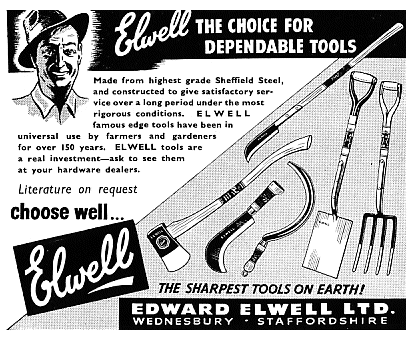 |
 |
|
 |
|
 |
Return to
Lighter Industries |
|
Return to
the contents |
|
Proceed to More Manufacturers |
|